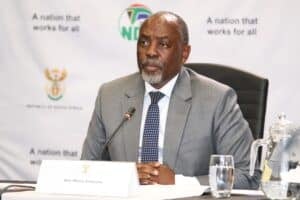Towards the latter stages of his 10-year term, Mogoeng showed an unpredictable side and a lack of discipline when it came to expressing his personal opinion.

The person appointed to be the chief justice of any country is expected to be beyond reproach in his or her professional and private life – and to apply the law without fear or favour.
Less often stated is that such a person should also steer well away from contentious subjects when in public.
The jury, so to speak, is still out on whether outgoing Chief Justice Mogoeng Mogoeng will be remembered for his jurisprudence or his imprudence when it came to some of his public statements and positions.
When he was appointed in September 2011 by then president Jacob Zuma, concerns were voiced in some quarters that, because he was a Zuma appointee, he would somehow do the bidding of the executive.
Mogoeng proved that concern to be utterly without foundation. In 2016, he presided over the landmark Nkandla judgment and reaffirmed the powers of the public protector to “take appropriate remedial action” against state organs.
The unanimous ruling found that Zuma was required to pay back a reasonable portion of the state funds spent on non-security upgrades at his private residence in Nkandla.
The ruling also found that parliament had failed to carry out its constitutional obligations to hold the president accountable after former public protector Thuli Madonsela released her report on the matter.
In many ways, that judgment was the beginning of the end of the Zuma era and showed that, while South Africa still had a strong and independent judiciary, the sort of banana republic favoured by Zuma and his supporters – where the courts were subservient to the “will of the people” (as expressed by the politicians they elect) – became a more remote prospect.
He later revealed that he had, at one stage, turned down a R600-million bribe from a man who wanted to “modernise” the courts.
That sort of conduct opened the way to state capture, Mogoeng said.
Yet, towards the latter stages of his 10-year term, Mogoeng showed an unpredictable side and a lack of discipline when it came to expressing his personal opinion.
In speaking his mind and revealing his obvious bias on issues, the chief justice opened himself up to serious criticism.
In December last year, the judge – who is a devout Christian and a pastor – caused outrage among the medical and scientific community when he said, while leading a group in prayer at Tembisa hospital: “If there be any [Covid] vaccine that is the work of the devil meant to infuse 666 in the lives of the people, meant to corrupt their DNA … may it be destroyed by fire.”
He defended himself later, saying it was his right to pray and exercise his religion.
In March this year, Mogoeng was ordered by the Judicial Conduct Committee (JCC) to retract and apologise for pro-Israel utterances he made in 2020, at a webinar hosted by The Jerusalem Post.
He said then that he had an obligation, as a Christian, to love and pray for the peace of Jerusalem.
Mogoeng lodged an appeal against the JCC finding after he refused to apologise for his pro-Israel comments.
Controversial Mogeong certainly was and his displays of partiality may have undermined the legal system.
But that should not blind us to the fact that he did his job well, without fear or favour.
May his successor do likewise.






